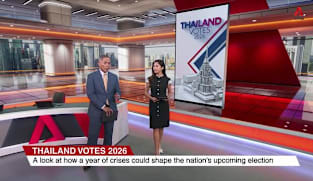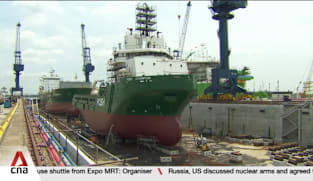Gan Siow Huang on tripartite guidelines on flexible work arrangement requests
Tripartite guidelines on flexible work arrangement (FWA) requests that will take effect in December do not mandate FWAs or set hard targets. Rather, they require employers to properly consider formal FWA requests by employees and aim to establish “the right norms and expectations” so that both sides can work out FWAs that are mutually beneficial. Employers can make a decision based on what works for their business needs. FWAs also cover a range of possibilities, not just working from home. Minister of State for Manpower Gan Siow Huang emphasised these points in her response to questions from Members of the House in Parliament on Tuesday (May 7). Ms Gan explained what recourse employees have if they feel their requests have not been fairly considered and what support is available to employers, including monthly briefings ahead of the rollout of the guidelines. She also said FWAs are an increasingly important tool for employers to attract and retain talent, as well as to optimise the potential of the local workforce in the long term. She answered questions on why it must be made mandatory for companies to consider requests, whether this will prove too onerous and make Singapore a less attractive place to invest in, and whether the possible grounds for rejection give employers too much leeway. Manpower Minister Tan See Leng also weighed in on a question about how FWAs will work in the context of the Progressive Wage Model.
Tripartite guidelines on flexible work arrangement (FWA) requests that will take effect in December do not mandate FWAs or set hard targets. Rather, they require employers to properly consider formal FWA requests by employees and aim to establish “the right norms and expectations” so that both sides can work out FWAs that are mutually beneficial. Employers can make a decision based on what works for their business needs. FWAs also cover a range of possibilities, not just working from home. Minister of State for Manpower Gan Siow Huang emphasised these points in her response to questions from Members of the House in Parliament on Tuesday (May 7). Ms Gan explained what recourse employees have if they feel their requests have not been fairly considered and what support is available to employers, including monthly briefings ahead of the rollout of the guidelines. She also said FWAs are an increasingly important tool for employers to attract and retain talent, as well as to optimise the potential of the local workforce in the long term. She answered questions on why it must be made mandatory for companies to consider requests, whether this will prove too onerous and make Singapore a less attractive place to invest in, and whether the possible grounds for rejection give employers too much leeway. Manpower Minister Tan See Leng also weighed in on a question about how FWAs will work in the context of the Progressive Wage Model.



















